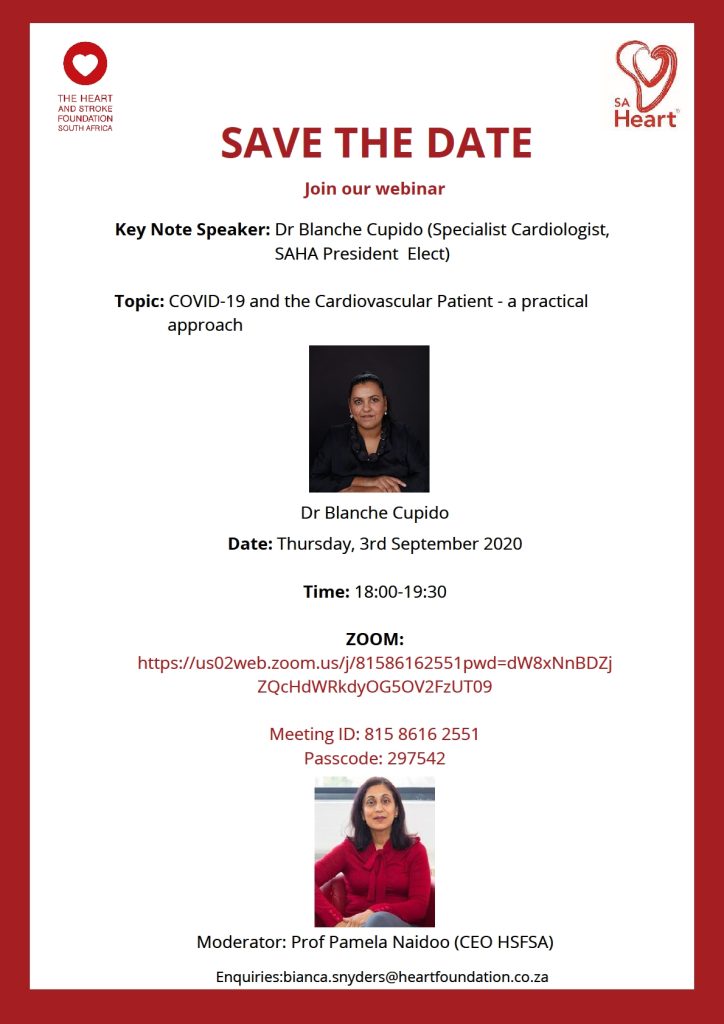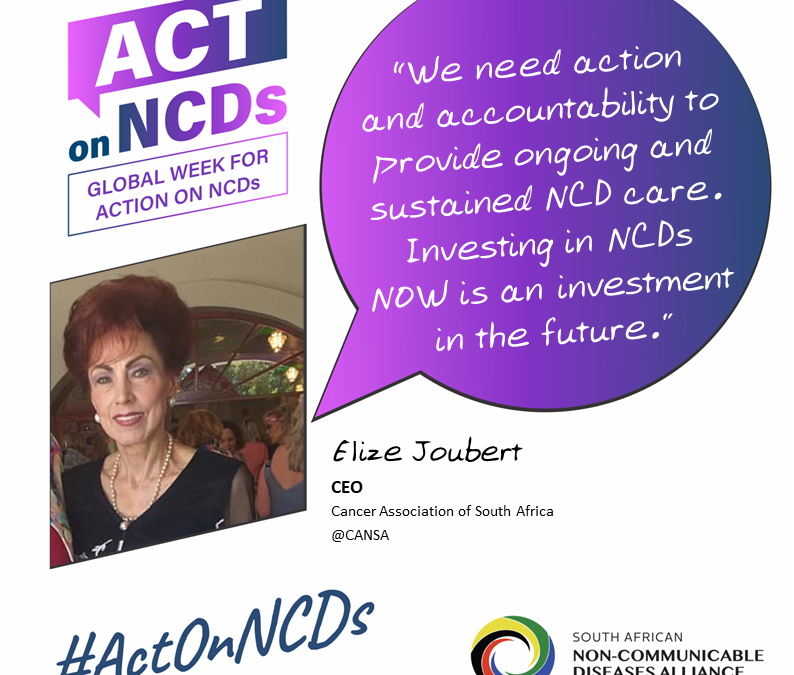
Act on NCDs build back beter






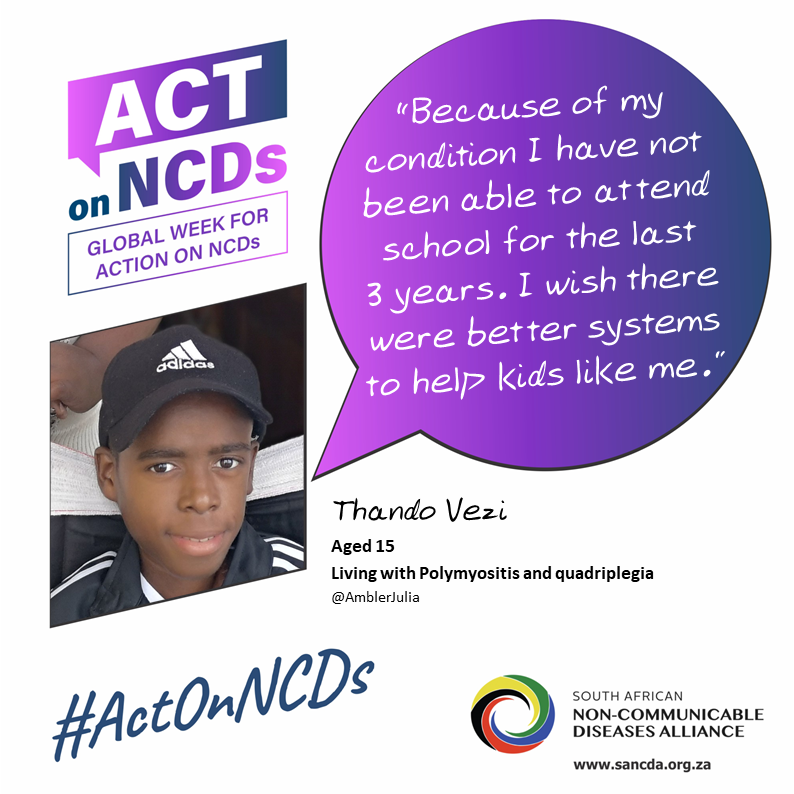
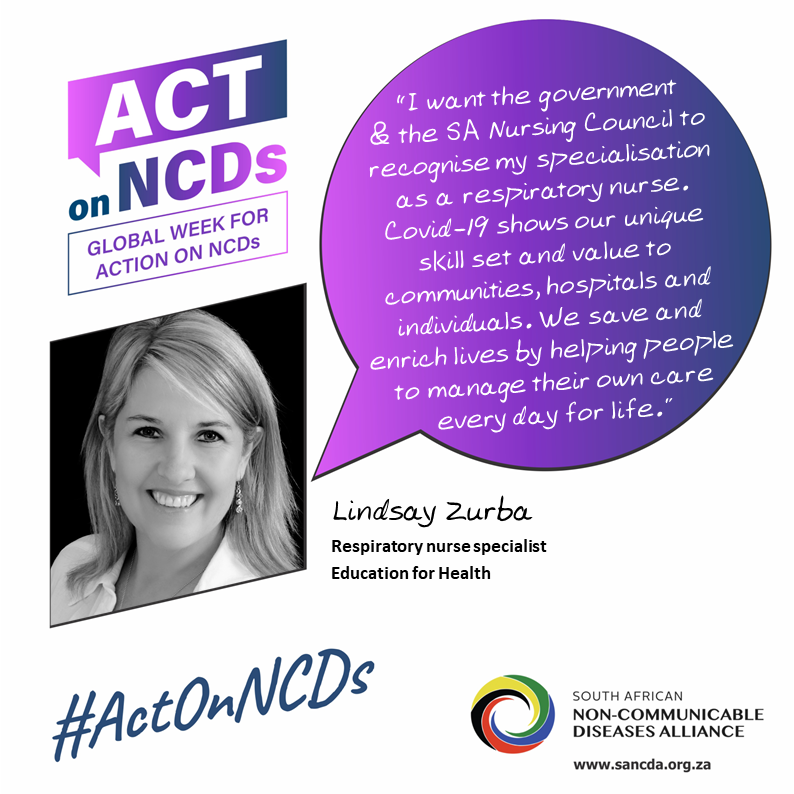
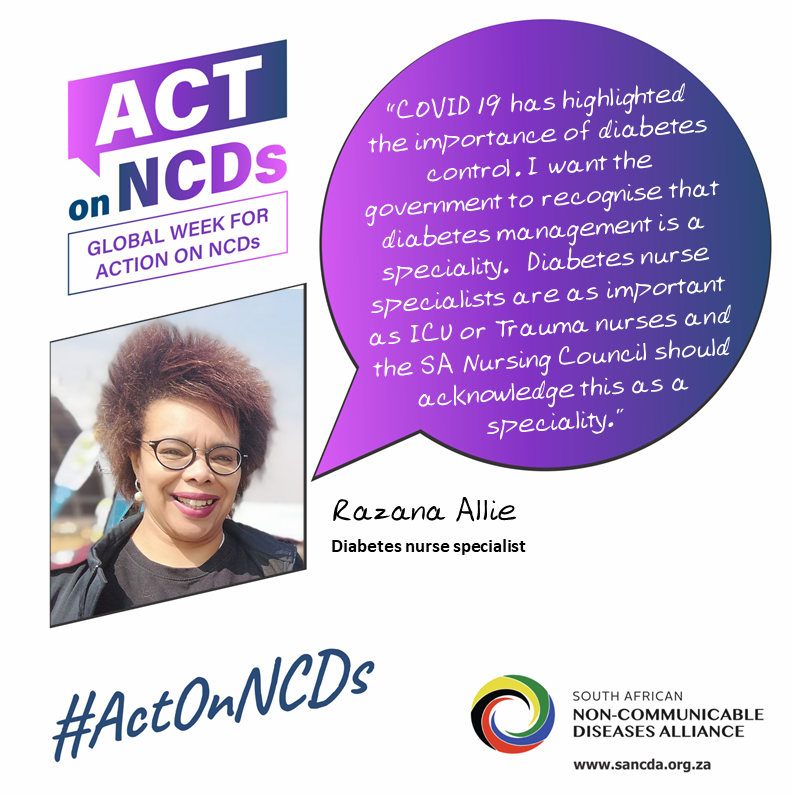

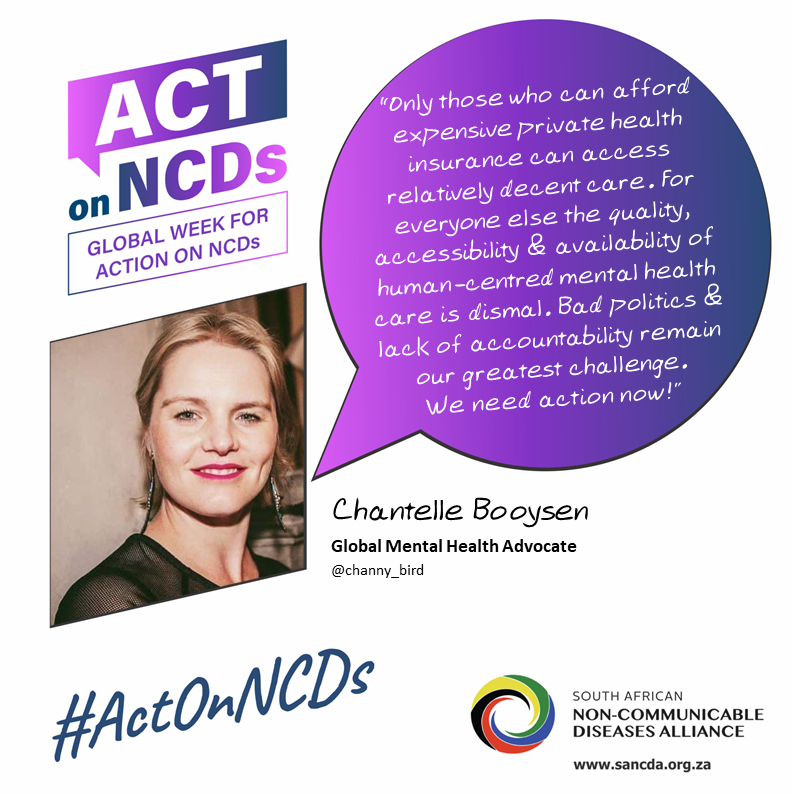
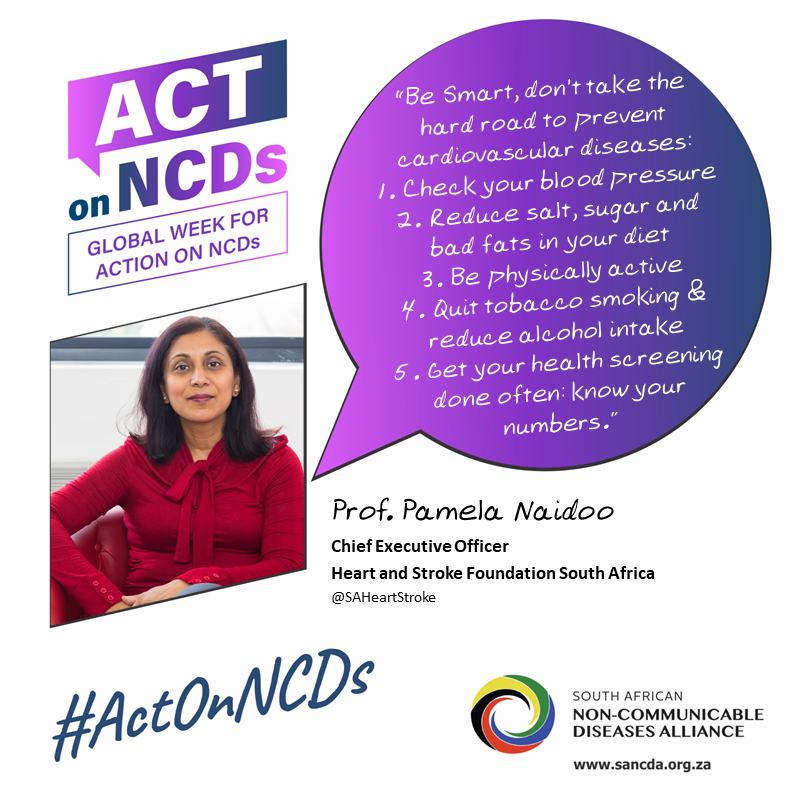
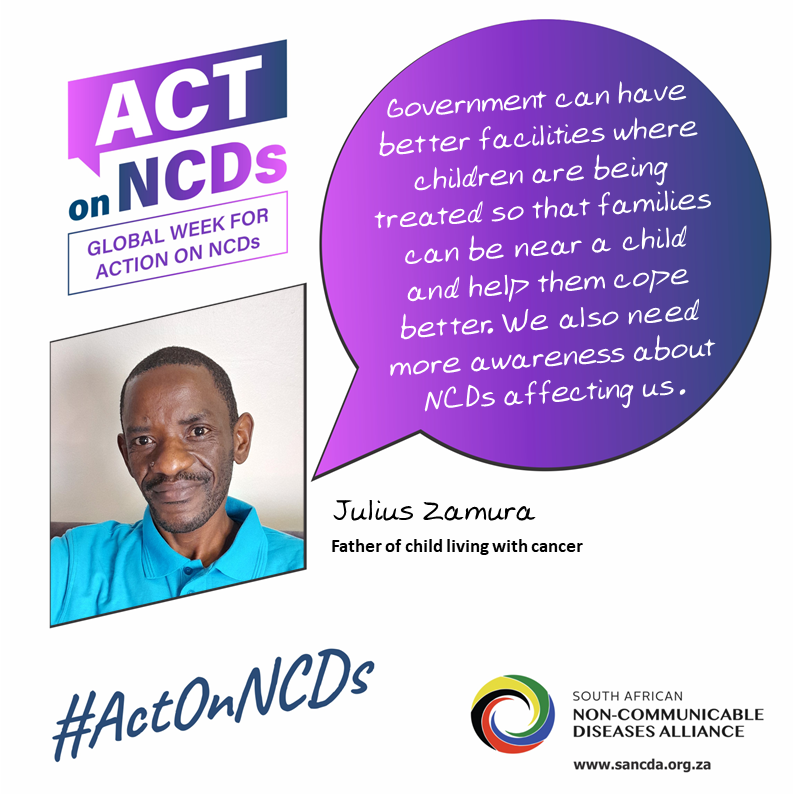
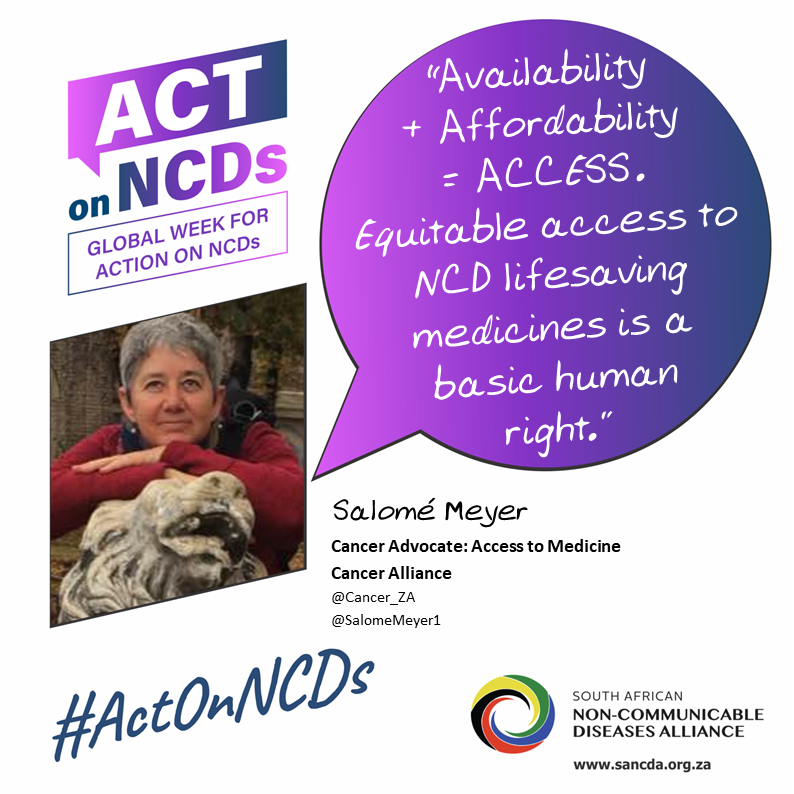

Over the next two weeks, The Lancet will be publishing two reports calling for urgent global action
on non-communicable diseases (NCDs).
For further information, or for an advance copy of the report, please contact The Lancet press office: [email protected]
**Embargo: 23.30 [UK time] Thursday 3rd September 2020**
Peer reviewed / Review and modelling
The Lancet: Many countries falling behind on global commitments to tackling premature deaths from chronic diseases, such as diabetes, lung cancer and heart disease
Many countries are falling short or behind on their commitments to reducing premature mortality from
chronic diseases, or non-communicable diseases (NCDs). Among high-income countries, only Denmark,
Luxembourg, New Zealand, Norway, Singapore, and South Korea are on track to meet the SDG target for
both men and women if they maintain or surpass their recent rates of progress.
These are the findings of the 2nd edition of the NCD Countdown 2030 report, published on Friday 3
September in TheLancet, ahead of the Global Week of Action on NCDs 7-13 September week. The 1st
NCD Countdown Report wasreleased in 2018 [1].
NCDs currently kill over 40 million people a year worldwide, making up seven out of ten deaths globally.
17 million of these deaths are of people younger than 70 years old and classed as premature; the great
majority (15 million) of these deaths are between 30 and 70 years.
In 2015, world leaders signed up to achieve the United Nations’ Sustainable Development Goal 3.4 of a
one-third reduction in deaths between 30 and 70 years of age from four key NCDs – cancer,
cardiovascular disease, chronic respiratory disease, and diabetes – by the year 2030. The NCD
Countdown 2030 report, led by Imperial College London, World Health Organization, and the NCD
Alliance, reveals that the global goal to reduce premature mortality from NCDs by one third by 2030 is still
achievable but many countries are falling short.
“No country can reach that target by simply addressing a single disease – what is needed is a package of
measures, a strong health system, which addresses prevention, early detection and treatment, tailored to
the national situation,” said Majid Ezzati, Professor of Global Environmental Health at Imperial College
London, who led the study. [2]
“Young people must lead the fight against NCDs. An estimated 150 million people will lose their lives too
early from a noncommunicable disease over the next decade and right now NCDs are intensifying the
impact of COVID-19,” said Dr Bente Mikkelsen, Director of Noncommunicable Diseases, World Health
Organization. “We must ensure that all NCDs are addressed in COVID-19 recovery plans so that we can
turn this deadly tide. We cannot allow NCDs to become a generational catastrophe, where human
potential is wasted, and inequality is exacerbated.” [2]
NCDs in the context of the COVID-19 pandemic
People living with many NCDs are being disproportionately affected by COVID-19 – they are at a
considerably higher risk of suffering severe illness and dying from the disease. At the same time, the
ability to reach the UN targets is being challenged by the added impact of the COVID-19 pandemic which
is severely disrupting the capacity of national health services to deliver regular screening, diagnosis,
treatment and prevention of NCDs.
“COVID-19 has exposed how a failure to invest in effective public health to prevent NCDs and provide
health care for people living with NCDs can come back to bite us,” said Katie Dain, CEO of the NCD
Alliance. “The good news is that all countries can still meet the 2030 targets, with sound policies and
smart investments. NCD prevention and treatment can no longer be seen a ‘nice to have’, it must be
considered as part of pandemic preparedness.” [2]
In an editorial, The Lancet highlights that: “COVID-19 and NCDs form a dangerous relationship,
experienced as a syndemic that is exacerbating social and economic inequalities… COVID-19 is a
pandemic that must highlight the high burden that NCDs place on health resources. It should act as a
catalyst for governments to implement stricter tobacco, alcohol, and sugar controls, as well as focused
investment in improving physical activity and healthy diets. COVID-19 has shown that many of the tools
required for fighting a pandemic are also those required to fight NCDs: disease surveillance, a strong civil
society, robust public health, clear communication, and equitable access to resilient universal health-care
systems… COVID-19 must stimulate far greater political action to overcome inertia around NCDs.”
Tracking country progress on SDG 3.4
The UN measure of progress towards the SDG target 3.4 is reducing by one-third the risk of death
between 30 and 70 years of age from four major groups of NCDs (cancers, cardiovascular diseases
(CVDs), chronic respiratory diseases, and diabetes), termed NCD4. Based on recent (2010-2016) trends,
the NCD Countdown 2030 report finds that:
Tracking progress on four major groups of NCDs
Worldwide, deaths from stroke, heart disease and stomach cancer are falling, although overall progress
has slowed compared to the previous decade, according to WHO [3]. Deaths from diabetes, lung cancer,
colon cancer and liver cancer are stagnating or rising in many countries. The NCD Countdown 2030
report shows that (see figure 2):
Policies to accelerate decline in premature mortality
The report notes that although premature death from NCDs is declining in the majority of countries, the
pace of change is too slow to achieve SDG target 3.4 in most. The authors used mathematical modelling
to assess how many options countries have for accelerating mortality decline.
“To move forward we must learn from those countries that are doing well and replicate their strategies to
NCD prevention and healthcare,” said Professor Ezzati. “Our analysis shows that every country still has
options to achieve SDG target 3.4 but they need to address multiple diseases and have strong health
systems.” [2]
To that end the report highlights the set of interventions needed to move countries forward:
Tobacco and alcohol control and effective health system interventions, such as a ban on advertising,
increasing taxes, plain packaging, public smoking/drinking bans.
NOTES TO EDITORS
[1] NCD Countdown 2018 report: https://www.thelancet.com/journals/lancet/article/PIIS0140-6736(18)31992-5/fulltext
[2] Quotes direct from authors
[3] https://www.who.int/gho/publications/world_health_statistics/2020/en/
The labels have been added to this press release as part of a project run by the Academy of Medical Sciences
seeking to improve the communication of evidence. For more information, please see: http://www.sciencemediacentre.org/wp-content/uploads/2018/01/AMS-press-release-labelling-system-
GUIDANCE.pdf if you have any questions or feedback, please contact The Lancet press office [email protected]
For country specific data, including % change in the risk of premature death from 2010-2016, as well as a
ranking of nations in terms of the risk of premature death for 2016, please see appendix 1. For data relating
to key countries, please contact the authors.
For media enquiries, please contact Ryan O’Hare, Research Media Officer (Medicine), Imperial
College London, Tel: +44 (0)20 7594 2410 Email: [email protected] or Michael Kessler, NCD
Alliance Media Relations, Tel: + 34 655 792 699, Email: [email protected]
Contact The Lancet press office:
LONDON
Ashleigh Smith, Media and Communications Assistant: [email protected]
Jessica Kleyn, Press Officer: Tel: +44 (0) 7342 068540 [email protected]
Emily Head, Media Relations Manager: Tel: +44 (0) 7920 530997 [email protected]
NEW YORK
Aaron van Dorn, Outreach Editor/Press Assistant: Tel: +1 212-633-3810 [email protected]
OUTSIDE OF UK HOURS
Tel: +44 (0) 207 424 4249
Over the next two weeks, The Lancet will be publishing two reports calling for urgent global action
on non-communicable diseases (NCDs).
For further information, or for an advance copy of the report, please contact The Lancet press office: [email protected]
**Embargo: 23.30 [UK time] Thursday 3rd September 2020**
Peer reviewed / Review and modelling
The Lancet: Many countries falling behind on global commitments to tackling premature deaths from chronic diseases, such as diabetes, lung cancer and heart disease
Many countries are falling short or behind on their commitments to reducing premature mortality from
chronic diseases, or non-communicable diseases (NCDs). Among high-income countries, only Denmark,
Luxembourg, New Zealand, Norway, Singapore, and South Korea are on track to meet the SDG target for
both men and women if they maintain or surpass their recent rates of progress.
These are the findings of the 2nd edition of the NCD Countdown 2030 report, published on Friday 3
September in TheLancet, ahead of the Global Week of Action on NCDs 7-13 September week. The 1st
NCD Countdown Report wasreleased in 2018 [1].
NCDs currently kill over 40 million people a year worldwide, making up seven out of ten deaths globally.
17 million of these deaths are of people younger than 70 years old and classed as premature; the great
majority (15 million) of these deaths are between 30 and 70 years.
In 2015, world leaders signed up to achieve the United Nations’ Sustainable Development Goal 3.4 of a
one-third reduction in deaths between 30 and 70 years of age from four key NCDs – cancer,
cardiovascular disease, chronic respiratory disease, and diabetes – by the year 2030. The NCD
Countdown 2030 report, led by Imperial College London, World Health Organization, and the NCD
Alliance, reveals that the global goal to reduce premature mortality from NCDs by one third by 2030 is still
achievable but many countries are falling short.
“No country can reach that target by simply addressing a single disease – what is needed is a package of
measures, a strong health system, which addresses prevention, early detection and treatment, tailored to
the national situation,” said Majid Ezzati, Professor of Global Environmental Health at Imperial College
London, who led the study. [2]
“Young people must lead the fight against NCDs. An estimated 150 million people will lose their lives too
early from a noncommunicable disease over the next decade and right now NCDs are intensifying the
impact of COVID-19,” said Dr Bente Mikkelsen, Director of Noncommunicable Diseases, World Health
Organization. “We must ensure that all NCDs are addressed in COVID-19 recovery plans so that we can
turn this deadly tide. We cannot allow NCDs to become a generational catastrophe, where human
potential is wasted, and inequality is exacerbated.” [2]
NCDs in the context of the COVID-19 pandemic
People living with many NCDs are being disproportionately affected by COVID-19 – they are at a
considerably higher risk of suffering severe illness and dying from the disease. At the same time, the
ability to reach the UN targets is being challenged by the added impact of the COVID-19 pandemic which
is severely disrupting the capacity of national health services to deliver regular screening, diagnosis,
treatment and prevention of NCDs.
“COVID-19 has exposed how a failure to invest in effective public health to prevent NCDs and provide
health care for people living with NCDs can come back to bite us,” said Katie Dain, CEO of the NCD
Alliance. “The good news is that all countries can still meet the 2030 targets, with sound policies and
smart investments. NCD prevention and treatment can no longer be seen a ‘nice to have’, it must be
considered as part of pandemic preparedness.” [2]
In an editorial, The Lancet highlights that: “COVID-19 and NCDs form a dangerous relationship,
experienced as a syndemic that is exacerbating social and economic inequalities… COVID-19 is a
pandemic that must highlight the high burden that NCDs place on health resources. It should act as a
catalyst for governments to implement stricter tobacco, alcohol, and sugar controls, as well as focused
investment in improving physical activity and healthy diets. COVID-19 has shown that many of the tools
required for fighting a pandemic are also those required to fight NCDs: disease surveillance, a strong civil
society, robust public health, clear communication, and equitable access to resilient universal health-care
systems… COVID-19 must stimulate far greater political action to overcome inertia around NCDs.”
Tracking country progress on SDG 3.4
The UN measure of progress towards the SDG target 3.4 is reducing by one-third the risk of death
between 30 and 70 years of age from four major groups of NCDs (cancers, cardiovascular diseases
(CVDs), chronic respiratory diseases, and diabetes), termed NCD4. Based on recent (2010-2016) trends,
the NCD Countdown 2030 report finds that:
Tracking progress on four major groups of NCDs
Worldwide, deaths from stroke, heart disease and stomach cancer are falling, although overall progress
has slowed compared to the previous decade, according to WHO [3]. Deaths from diabetes, lung cancer,
colon cancer and liver cancer are stagnating or rising in many countries. The NCD Countdown 2030
report shows that (see figure 2):
Policies to accelerate decline in premature mortality
The report notes that although premature death from NCDs is declining in the majority of countries, the
pace of change is too slow to achieve SDG target 3.4 in most. The authors used mathematical modelling
to assess how many options countries have for accelerating mortality decline.
“To move forward we must learn from those countries that are doing well and replicate their strategies to
NCD prevention and healthcare,” said Professor Ezzati. “Our analysis shows that every country still has
options to achieve SDG target 3.4 but they need to address multiple diseases and have strong health
systems.” [2]
To that end the report highlights the set of interventions needed to move countries forward:
Tobacco and alcohol control and effective health system interventions, such as a ban on advertising,
increasing taxes, plain packaging, public smoking/drinking bans.
NOTES TO EDITORS
[1] NCD Countdown 2018 report: https://www.thelancet.com/journals/lancet/article/PIIS0140-6736(18)31992-5/fulltext
[2] Quotes direct from authors
[3] https://www.who.int/gho/publications/world_health_statistics/2020/en/
The labels have been added to this press release as part of a project run by the Academy of Medical Sciences
seeking to improve the communication of evidence. For more information, please see: http://www.sciencemediacentre.org/wp-content/uploads/2018/01/AMS-press-release-labelling-system-
GUIDANCE.pdf if you have any questions or feedback, please contact The Lancet press office [email protected]
For country specific data, including % change in the risk of premature death from 2010-2016, as well as a
ranking of nations in terms of the risk of premature death for 2016, please see appendix 1. For data relating
to key countries, please contact the authors.
For media enquiries, please contact Ryan O’Hare, Research Media Officer (Medicine), Imperial
College London, Tel: +44 (0)20 7594 2410 Email: [email protected] or Michael Kessler, NCD
Alliance Media Relations, Tel: + 34 655 792 699, Email: [email protected]
Contact The Lancet press office:
LONDON
Ashleigh Smith, Media and Communications Assistant: [email protected]
Jessica Kleyn, Press Officer: Tel: +44 (0) 7342 068540 [email protected]
Emily Head, Media Relations Manager: Tel: +44 (0) 7920 530997 [email protected]
NEW YORK
Aaron van Dorn, Outreach Editor/Press Assistant: Tel: +1 212-633-3810 [email protected]
OUTSIDE OF UK HOURS
Tel: +44 (0) 207 424 4249
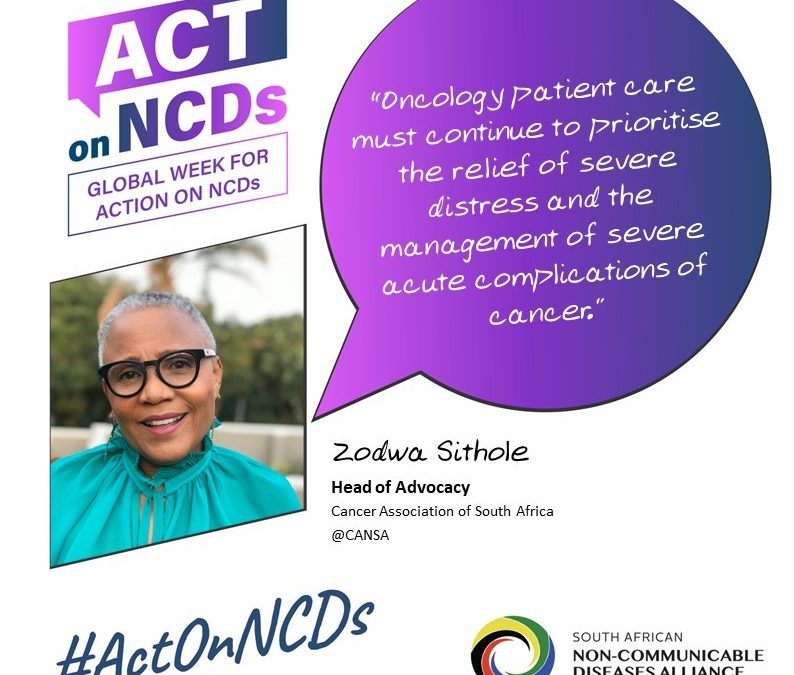
3 September 2020 – CANSA is partnering with the South African Non-Communicable Diseases Alliance (SANCDA) to support the Global Week for Action on NCDs (7 to 11 September 2020). Hosted annually by the global NCD Alliance, the theme for 2020 is ‘Accountability’. #ActOnNCDs #BuildBackBetter – download infographics…
The SANCDA and partners are urging government to help lower NCDs related deaths and implement ongoing, sustained care for people living with NCDs, during the COVID-19 pandemic and beyond. NCDs such as heart attacks, strokes, cancer, chronic respiratory diseases, diabetes and mental health – are currently the number one cause of death and disability globally and in South Africa, with the global NCD burden expected to increase by 17% by 2025. *+
Dr Vicki Pinkney-Atkinson, Director of the SANCDA says, “Accountability means that we, the people must monitor the commitments to act made by government and policymakers. We want to see that promises are kept and measured. Before COVID-19, the NCDs group of conditions caused most deaths in South Africa but remained neglected within government policy and budgets.+. COVID-19 has highlighted this neglect, and most people who die following COVID-19 infection, have one or more NCDs. People living with well managed NCDs have a better chance of survival. We have to keep on asking government for people living with NCDs to have proper access to care and medicines during the pandemic and into the future.”
Zodwa Sithole, CANSA’s Head of Advocacy, adds, “Everyone is affected by NCDs in some way, including a cancer diagnosis. Be it living with an NCD, caring for someone with an NCD or being at risk for an NCD. South Africans need to stand together and be voices of change, calling on government to step up with meaningful action to lower preventable suffering, death and disability from NCDs.”


The SANCDA makes the call for better monitoring, data and action on commitments and integrating NCDs into the COVID-19 response. The health needs of people with NCDs must be met at primary health care level close to the community within national health insurance (NHI). The treatment and management of NCDs, including pain medication, must be available and accessible to all NCDs patients.
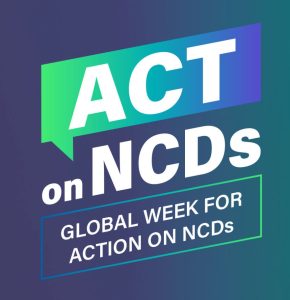 The SANCDA and CANSA are hosting a webinar on 15 September 2020 to profile Global NCD Week and focus on accountability and how to build back better health care for people living with NCDs after COVID-19. Chaired by Zodwa Sithole, CANSA’s Head of Advocacy, the webinar includes messages from high-level policymakers and the main address by Dr Vicki Pinkney-Atkinson, Director of SANCDA and a person living with over 20 NCD conditions plus input by the National Department of Health.
The SANCDA and CANSA are hosting a webinar on 15 September 2020 to profile Global NCD Week and focus on accountability and how to build back better health care for people living with NCDs after COVID-19. Chaired by Zodwa Sithole, CANSA’s Head of Advocacy, the webinar includes messages from high-level policymakers and the main address by Dr Vicki Pinkney-Atkinson, Director of SANCDA and a person living with over 20 NCD conditions plus input by the National Department of Health.
Pinkney-Atkinson states, “We’re excited to have participation from people living with NCD’s about their personal experiences and how they want to see “Accountability Now”. We invite all health media, global and national partners and people living with NCDs to join us on the 15th of September 2020. No voice is too small and each voice can make a difference by putting pressure on government to deliver support to people with NCDs.”
The webinar will be streamed via live Facebook on @southafricanncdsalliance, Tuesday 15 September 2020 from 13:00 to 14:00.
* (https://ncdalliance.org/why-ncds/NCDs)
+ (https://bit.ly/2Evard4)
(For more information, please contact Lucy Balona, Head: Marketing and Communication at CANSA at email [email protected]. Call 011 616 7662 or mobile 082 459 5230.)
NCDs are a large group of health conditions that are generally not spread from person to person and used to be called chronic illness until 2000 when the Millennium Develop Goals force a new definition. Often the 5 main NCDs groups of conditions are noted: diabetes, circulatory disorders, mental health, cancer, and chronic respiratory illnesses. However, there are many more conditions that do not get a mention. Globally NCDs conditions are responsible for 41 million deaths annually and they are leading cause of death in South Africa since 2013. Diabetes is the leading cause of death of South African women.
However, the NCDs agenda is not just about illness it goes to a whole of society and whole of government response and for this we need an expanded understanding, meaning, NCDs+. The expanded NCDs+ advocacy agenda includes prevention, vulnerable populations, stigma control and disability. NCDs+ has many determinants (social, economic, and commercial) that disproportionately impact poor people. The Sustainable Development Goals (SDGs) address NCDs+ and its inclusion as an equal part of universal health coverage. (National Health Insurance in South Africa).
The SA NCDs Alliance, established in 7 years ago, is a civil society partnership between three trusted NCDs advocacy organisations: CANSA, Diabetes SA and the Heart & Stroke Foundation SA.
Its mission is for the people of South Africa have equitable access to quality NCDs+ prevention and management within universal health coverage/ NHI.
For this important COVID-19 and NCDs+ advocacy project nearly 90 civil society organisations are collaborating:
The SA NCDs Alliance’s goal in this programme it to ensure that the policy window of opportunity opened by the COVID-19 pandemic is used to make NCDs a priority in government policy through collaboration with NCDs civil society to put it on a par with HIV & TB.
www.sancda.org.za
Diabetes helpline +27-81-578-6636
